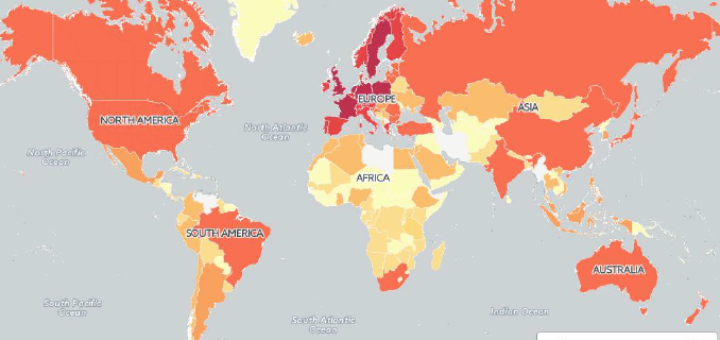It is unclear whether the large variety on data sources and information on policies mitigating climate change matches the expectations and needs of stakeholders. It is concluded that the data and information available suffers from numerous shortcomings.
Information overload? A review of databases on climate change mitigation policy
Information on policies mitigating climate change, which could meet key information needs in a post-Paris world, is increasingly available in online databases. However, it is unclear whether this large variety of data sources and the available information matches the expectations and needs of stakeholders at these different levels. Against this backdrop, the Stockholm Environment Institute (SEI) in Oxford has undertaken an analysis of 24 databases on climate change policies, with a focus on climate change mitigation policies.
It is concluded that the available information suffers from several shortcomings. First, there is an uneven geographical distribution of the available data, with little information available about some regions of the world (e.g. sub-Saharan Africa). Second, information about policies is available mostly for the energy sector, while other areas (e.g. agriculture) are underrepresented. Third, databases overall shy away from reporting on costs, actual emissions savings or policy interactions, and also tend to eschew comparisons between jurisdictions. Fourth, databases seem to be insufficiently linked with each other, thus forgoing synergies. These findings are very preliminary in nature and the points evoked above warrant deeper analysis and further research in order to make policy information relevant to policy makers.
Authors: Stefan Bößner and Harro van Asselt (Stockholm Environment Institute). The full Working Document can be downloaded from the CARISMA project website.

This article is an output of the EU-funded CARISMAproject.
CARISMA
CARISMA project
Project details
- Project title: “Coordination and Assessment of Research and Innovation in Support of climate Mitigation Actions” (CARISMA)
- Funding scheme: European Union Horizon 2020 Programme (EU H2020, grant agreement no. 642242)
- Duration: 3.5 years (1 February 2015 – 31 July 2018)
- Project coordinator: Radboud University, Nijmegen, the Netherlands
- Project website: www.carisma-project.eu


